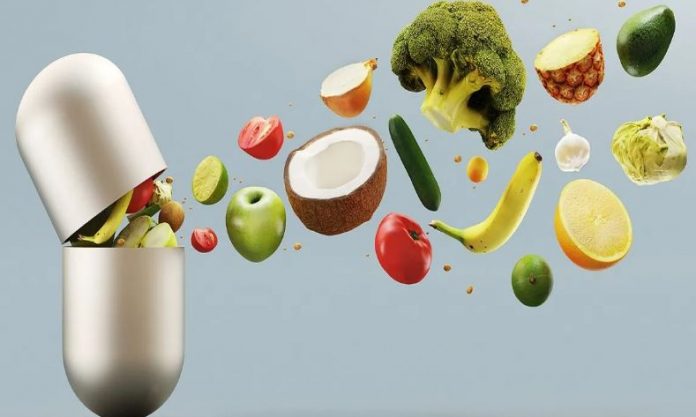Choosing a good vitamin supplement can be a frustrating ordeal. There are 1000’s of supplements to choose from – some are good, but many are total rip-offs.
Many vitamin companies depend on the average consumer not being very well informed and they’ll take billions of dollars from them this year.
In this article, you’ll learn vital facts 90% of vitamin buyers do not know. Plus – 5 sure-fire ways you can use to judge every new vitamin supplement that comes along.
Once you’re armed with the information revealed here, you’ll be “bullet-proof” against vitamin supplement hype.
HOW DOES THE SUPPLEMENT DISSOLVE IN THE STOMACH?
Not too long ago a TV news program showed a couple vitamin supplements found in hospital bed-pans. They were completely whole. You could even see the brand name on one of them.
It was one of the most popular drug store vitamin supplements sold in America today. The hospital staff finds these often and call them “bed-pan bullets”.
There are basically 3 types of supplement delivery systems. Liquid, tablets, and capsules.
Liquid, of course, is ready to go but there’s not currently many choices. Liquid supplements are a bit inconvenient and taste like cough syrup.
But, they’re perfect for those having trouble swallowing pills – and for youngsters.
Tablets are the most common vitamin supplement. They are formed by mixing in an organic or inorganic cement and compressing into shape.
To dissolve properly, an organic cement should be used – but it’s more costly for the company.
Also, there are coated tablets, as mentioned above, that look like little candy-coated M&M’s. These are quite common with the one or two per day cheap drug store vitamins.
Capsules are loosely packed gelatin containers that dissolve quickly. My first choice. Because they’re not compressed like tablets, you will usually have to take two of these to equal one tablet.
HOW WELL ARE THE VITAMINS AND MINERALS ABSORBED?
Fact is – studies have shown individual vitamin isolates in supplements are about 10% absorbed. Compare this to vitamins directly from a fresh plant source which are 77% to 93% absorbed.
Minerals in a supplement are even worse – 1% to 5%. But, from a plant source like raw broccoli, the minerals are 63% to 78% absorbable.
The reason for this difference is, in nature, each vitamin and mineral molecule is attached to a protein molecule.
Dr. Gunter Blobel, in 1999, received a Nobel Prize for proving this attached protein molecule acted as a “chaperone”. It’s the chaperone that tells the body the vitamin or mineral is food, not just another chemical.
He discovered this was the KEY to getting the vitamin or mineral into the blood-stream – and, most importantly, into the cells.
Vitamins in supplements are the very basic isolated form of each vitamin – completely stripped of any proteins. Like a Christmas tree with all the limbs cut off.
That’s why vitamin supplements MUST be taken with meals – unless stated otherwise on the label.
In the digestion process, only about 10% of the vitamin and mineral molecules, with the aid of enzymes, will attach to protein molecules in your food.
This allows them to be absorbed and used by the cells. Without these protein chaperones, the body sees the vitamin isolates as foreign chemicals.
The body actually will absorb some of these too, but they’re quickly filtered out through the kidneys.
Have you noticed a bright yellow urine soon after taking a vitamin supplement? Excess riboflavin causes the yellow color and it shows the body is getting rid of what it feels are foreign chemicals.
HERE ARE 5 TIPS FOR CHOOSING A SUPPLEMENT THAT’S RIGHT FOR YOU!
1. Does the supplement provide sufficient quantities of each vitamin?
For example – 50mg. to 100mg. of the B vitamins, 500mg. of vitamin C, 1000mg. of calcium.
Remember, 100mg. of a B vitamin is needed to provide your body with about 10mg. of actual, useable nutrition. This is usually plenty. Use the 10% rule to know exactly what you’re getting.
The one or two per day supplements only start with about 3mg. or less of the B vitamins. 10% of this amount is like taking nothing at all.
2. Look for the USP (United States Pharmacopoeia) or BP (British Pharmacopoeia) designation on the label.
This means that the vitamin isolates are the highest quality you can buy, and are the most easily dissolved in the digestion process. Each vitamin that is USP or BP will have those initials next to that vitamin.
3. Look for “chelate” or “chelated” in relation to the minerals.
This means the minerals are attached to protein before they are added to the supplement. This increases absorption both in the bloodstream and cells by an amazing 400% to 800%.
4. Look for enzymes in the formulation.
These are, among other things, essential for attaching protein molecules to the vitamins in digestion. Cooking food destroys these enzymes.
5. Look for a supplement that has a “food base”.
A food base is concentrated plant material to which the vitamins and minerals are added. These will contain the enzymes and nutrients to greatly boost the absorption and utilization of the vitamins and minerals.
This makes a GREAT supplement package. But it does make them more bulky. Expect larger tablets, and more quantity needed per day.
All in all, keep in mind that nutritional supplements are not food and do not take the place of real food. They only provide an additional boost to our current food choices.
Most importantly, listen to your body! What’s right for others may not be right for you. You definitely should FEEL a measurable difference in your health and energy within a few days with the right supplement. If you don’t, try a different vitamin supplement.

